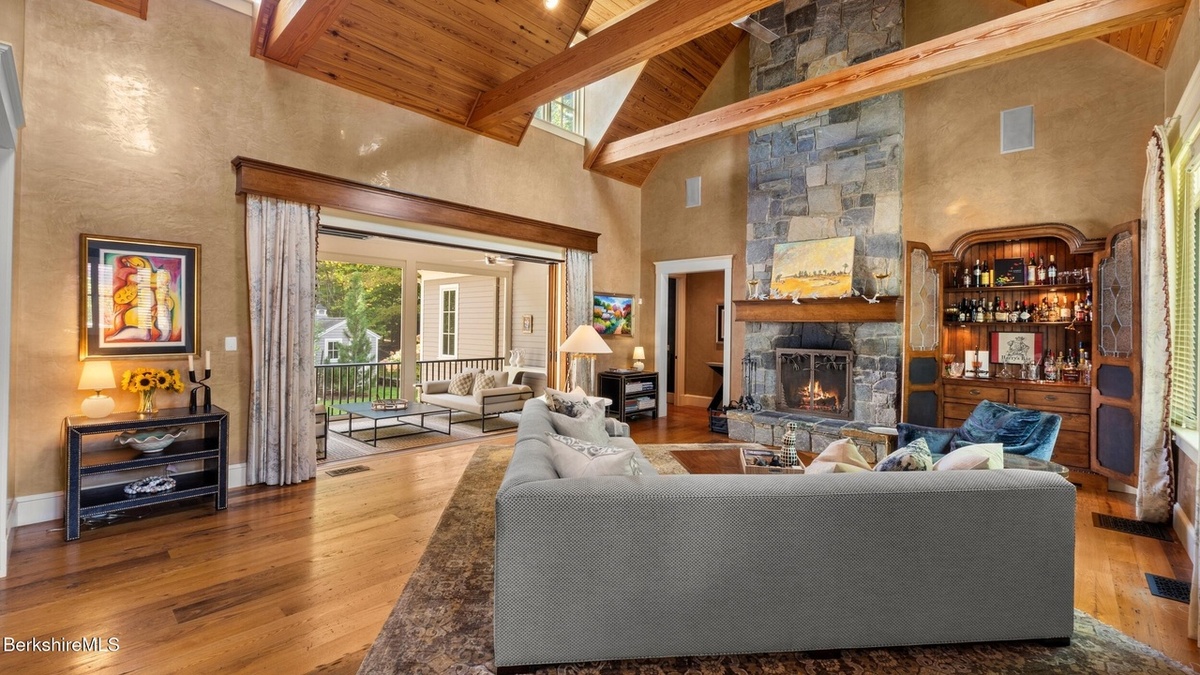UMass Amherst & Hancock Shaker Village Create New Graduate Degree
PITTSFIELD, Mass. – UMass Amherst and Hancock Shaker Village have announced a groundbreaking partnership that will create a new two-year master’s degree program that combines the university’s strengths in architecture and public history with on-site training and courses utilizing the Village’s National Historic Landmark site.Starting in Fall 2010, the new Master of Science in Design with a concentration in historic preservation will offer advanced study of traditional building materials, preservation theory, and building systems utilizing the architecture, archives, collections, and library at Hancock Shaker Village. Students and professionals already working in historic preservation and architectural conservation will earn the degree through the university’s Continuing and Professional Education program. Students will study and conduct fieldwork side-by-side with Hancock Shaker Village staff and visiting experts on topics such as building restoration, town planning, and historic site administration. A unique highlight will be the special focus on Shaker ideals, building methods, and historic craft and trade knowledge as they apply to modern life.
Massachusetts Governor Deval Patrick issued a statement about the partnership that was read at the program announcement. The Governor noted that “Massachusetts’ long and storied history has left us with myriad artifacts and treasures in need of preservation and restoration. Through this program, students will learn cutting edge techniques and tools to conserve our most precious pieces of history for future generations. This is a wonderful program on the Commonwealth’s educational landscape, and it will surely continue the state’s unparalleled tradition of academic excellence.”
Ellen Spear, president and CEO of the non-profit historic Village, said, “We think it is important for Hancock Shaker Village to be a leader in training the next generation of preservationists. With our colleagues at the University of Massachusetts, we will offer a program unique to the region and become a regional center for preservation studies. The educational opportunity for conservation professionals is so much more vivid through the use of the Village’s historic buildings and landscapes, collections, and archives.”
Joel Martin, dean and distinguished professor, UMass Amherst College of Humanities & Fine Arts, said, “This partnership will not only enrich our understanding of the American past, but the partnership itself is entirely cutting edge and innovative. It unites the strengths of a research university’s superb scholarly programs in architecture and public history with the unique riches of one of New England’s most important historic sites to forge an exceptional learning opportunity for people who value cultural heritage and historic preservation.”
Bill Vogt, chair of the Hancock Shaker Village board, said the program marks an important step forward in the Village’s long-range plan. The UMass Amherst partnership should also help the museum expand its direct and active education programs to become a center for preservation study.
Steven Bedford, an architectural historian for more than 20 years with special expertise in cultural resource investigations and management, will direct the new program and teach American Building and Preservation Theory courses. Overall, the new degree program is expected to enroll 10 to 12 students in the first year, later expanding to 25 or 30.
“I’m enthusiastic about working and teaching in such a rich cultural landscape,” said Bedford. “I think it’s the first instance of a building preservation program located within a National Historic Landmark. Excellent examples of late 18th through early 20th century architecture are right at hand.”
Bedford noted that in this era when designers, builders, and architects increasingly seek sustainable and intelligent energy alternatives, Hancock Shaker Village and UMass Amherst will be rediscovering lessons from buildings handed down by “a culture whose principles and ethos were based completely on what we now call sustainability.” The new degree program should also help raise awareness of academic research and advanced restoration techniques in the traditional building community, he pointed out.
For more information about the UMass Amherst Hancock Shaker Village Graduate Degree in Historic Preservation and Design, contact Steven Bedford at 413.443.0188 ext. 239 or sbedford@hancockshakervillage.org.
About Hancock Shaker Village
Hancock Shaker Village is one of the most visited cultural venues in the Berkshires of western Massachusetts. Visited by nearly 70,000 people annually, the Village brings the Shaker story to life, and preserves it for future generations. It is a center for reflection on the values of principled living that the Shakers embraced – equality, community, sustainability, and responsible land stewardship – that still resonate today. For more information, call 800.817.1137 or see www.hancockshakervillage.org.


















